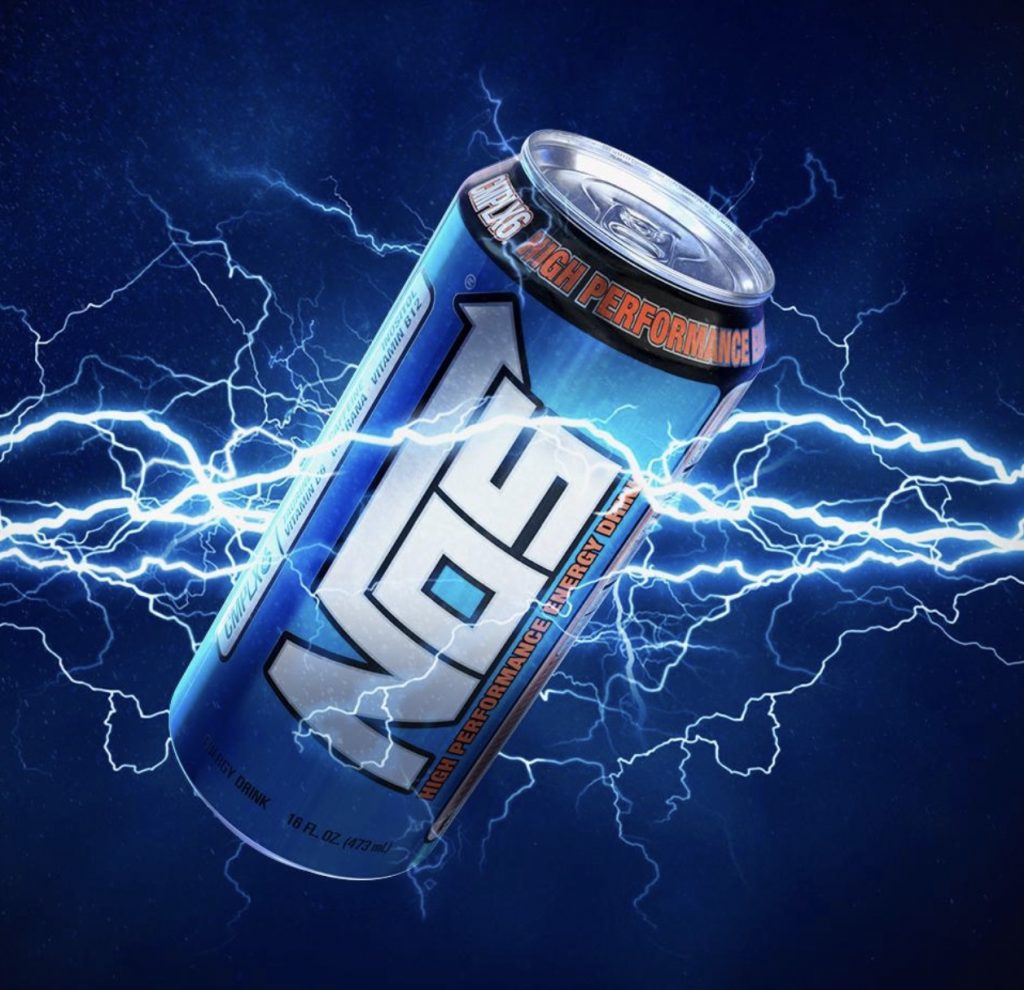Deciphering the caffeine content in energy drinks is no easy task. With the myriad of brands available on the market, the caffeine content can vary significantly. One such popular energy drink that has garnered attention is NOS. Known for its high-octane energy boost, many consumers have questioned, “how much caffeine in NOS?” This in-depth analysis will unravel the mysteries surrounding the caffeine content in NOS energy drinks.
The Genesis of NOS Energy Drink
NOS Energy Drink, with its distinctive logo and striking can design, has carved a unique niche for itself in the energy drink market. It was first produced by Fuze Beverages in 2005, with the brand name inspired by nitrous oxide, colloquially known as NOS, a chemical used by car and racing enthusiasts for an extra burst of speed. The brand was later acquired by the Coca Cola Company and, in 2015, its energy drink assets, including NOS, were transferred to Monster Beverage.
The Caffeine Content: Unveiling the Numbers
When it comes to caffeine content, NOS Energy Drink has undergone several changes over the years. Initially, the drink was known for its high caffeine content (260 mg per 16 fl oz). However, this was later reduced to 160 mg per 16 fl oz. This adjustment was likely made to align with the growing consumer concern about the potential health risks associated with high caffeine consumption.
For those who prefer larger servings of NOS, a 24 fl oz resealable can is also available. This version contains a whopping 240 mg of caffeine, making it one of the more potent options on the market.
A Glimpse at NOS Flavours
NOS Energy Drink comes in a variety of flavours, each offering the same caffeine content. Here’s a glimpse at the different flavours and their corresponding caffeine content:
- NOS Original: The classic and most popular flavour, it contains 160 mg of caffeine per can.
- NOS Nitro Mango: A tropical twist to the original, offering the same caffeine content.
- NOS GT Grape: A grape-flavoured version, with the standard 160 mg of caffeine.
- NOS Sonic Sour: A sour punch with the same amount of caffeine.
- NOS Power Punch: A fruity punch flavour, also containing 160 mg of caffeine.
- NOS Turbo: A unique blend with the same caffeine hit.
Comparing Caffeine Content with Other Energy Drinks
While the caffeine content in NOS is substantial, it’s interesting to see how it measures up against other popular energy drinks on the market. Here’s a comparative analysis of the caffeine content in various energy drinks:
- Bang Energy: Known for its high caffeine content, each can contains a staggering 300 mg of caffeine.
- Reign Total Body Fuel: Another high-caffeine contender, with 300 mg per can.
- Monster Energy: The parent company of NOS, Monster Energy’s original flavour contains 160 mg of caffeine per can, identical to NOS.
- Red Bull: A global favourite, each 12 oz can of Red Bull contains approximately 111 mg of caffeine.
- Proper Wild: Offering a clean, long-lasting energy boost, these energy shots provide 100 mg of organic caffeine per shot.
The Safe Limit of Caffeine Consumption
The US Food and Drug Administration (FDA) recommends a maximum caffeine intake of 400 mg per day for adults. This is roughly equivalent to three to four cups of coffee, ten cans of cola, or two energy shot drinks. It is essential to note that this is a general guideline and individual tolerance to caffeine can vary. Consuming too much caffeine can lead to side effects such as restlessness, insomnia, and rapid heartbeat, among others.
The Bottom Line
While NOS Energy Drinks offer a substantial caffeine boost, it’s crucial to consume them responsibly. The high caffeine content can provide the necessary energy boost when needed, but overconsumption can lead to potential health risks. As with all caffeinated beverages, moderation is key.
Before you reach for that next can of NOS, remember to consider your caffeine intake for the day and adjust accordingly. After all, being energized should never come at the expense of your health.







